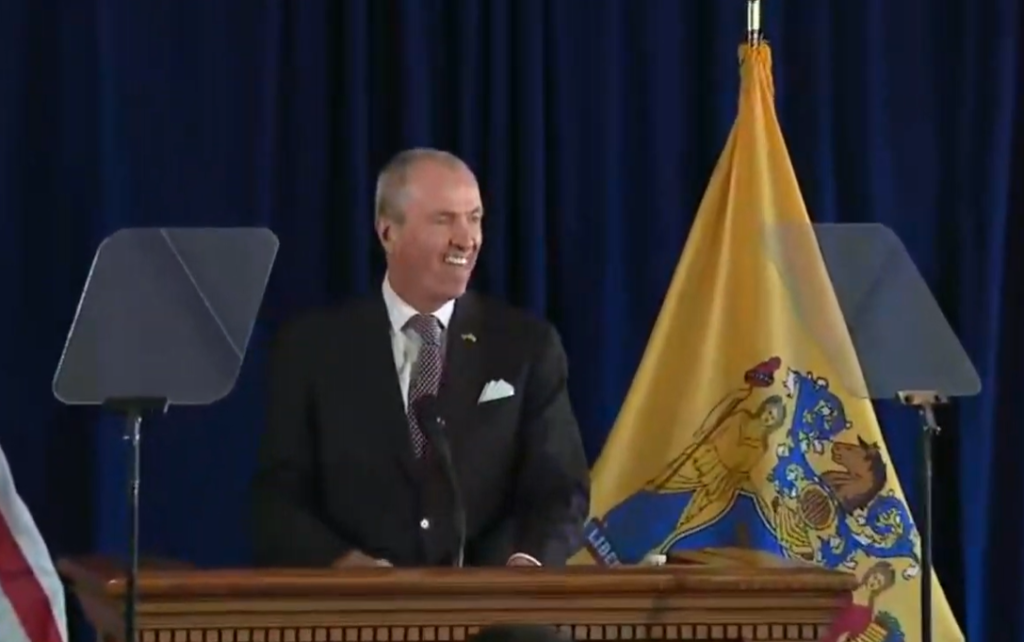Phil Murphy and the Captain Bligh Brand of Governing

Reflecting the confrontational politics currently engulfing Gov. Phil Murphy’s Administration and South Jersey Democrats, his veto of a 14-year, $56 million program to rebuild the boardwalk in and around Wildwood was immediately seen as another example of executive office retaliation against the party establishment and its hold on the land mass south of Trenton.
It may not rival the 100 years War, but very nearly since the day Murphy took office, his Administration and the southern leadership have engaged in a running quarrel over budget issues, taxes, economic development programs, public pension and benefits reforms, school aid, and even the veracity of the governor’s office staff.
His latest rejection of the boardwalk improvement program in Cape May County came atop impounding $235 million in spending approved by the Legislature but which Murphy claims is unaffordable and will undercut the need to maintain a budget surplus to guard against future downturns.
Not surprisingly, Senate President Steve Sweeney (D-Gloucester) lit into Murphy accusing him of a deliberate scheme to disproportionately punish the region of the state he represents.
The funding fight has played out against the background of Murphy’s accusations that more than $1 billion in tax incentives granted by the state’s Economic Development Authority benefited South Jersey political leader George Norcross — a friend and long time supporter of Sweeney — and his professional or business allies.
Norcross and the South Jersey establishment responded by assailing the governor, accusing him of turning his back on the people of Camden in an act of vindictiveness.
Murphy’s impoundment decision and veto of the boardwalk repair proposal were, in the minds of many, a clear message that trifling with the governor has consequences.
While he can make a case that his action to freeze or reject proposed spending was a prudent move that recognized the state’s fiscal condition, it can’t be separated from the political maelstrom that has raged for most of his term and splintered the party.
After an initial reluctance, he has demonstrated a willingness to engage in the struggle for dominance and has stepped up and stood up to Sweeney and Norcross.
The Administration’s early hesitation to assert the leadership authority and influence inherent in the office was attributed to an inexperienced staff and governor, naïve in the ways of power politics and legislative deal-making.
Murphy now, however, appears intent on bringing his opponents to heel in the most effective manner possible — using control over state resources to reward or punish.
He seems to be channeling his inner Captain Bligh, master of the HMS Bounty, who warned his rebellious crew: “The beatings will continue until morale improves!”
In this case, “beatings” are a euphemism for his control over funding and “morale” is the equivalent of his critics’ acceptance of that reality.
His conditional veto of legislation to extend the current tax incentive program and force compliance with his recommendations for a major overhaul of it is shaping up as the first significant test of whether he can impose his will on the Legislature and regain credibility for the remainder of his policy agenda.
Threats of an override or a refusal to act on the governor’s conditions have gained some currency, but whether Sweeney will escalate his contest with Murphy by moving for what would be the first override of a gubernatorial veto remains unclear.
Seasoned pol that he is, Sweeney will likely first take the temperature of his caucus to determine the appetite for an override as well as assessing if there would be Republican support for it.
He may conclude that, since the tax incentive program has expired and no additional grants can be approved, the safest and least inflammatory course would be tossing the issue into the next legislative session in January.
A four-month delay in acting on applications for the incentives would not impose a significant hardship and would provide a cooling off period during which both sides could work to achieve a compromise.
It wouldn’t do much to ease the ill will or apply ice to the bruised feelings inflicted by the controversy, but an ultimate agreement could allow each side to claim victory and take credit for rescuing a program which, in many ways, has proven its value.
Make no mistake, though; such an accomplishment would be a temporary truce at best. Trench warfare will continue and in all likelihood an outcome won’t be reached until the results of the 2021 election.
In the meantime, tourists in Wildwood should keep flip flops handy to avoid boardwalk splinters.
Carl Golden is a senior contributing analyst with the William J. Hughes Center for Public Policy at Stockton University.











He’s more like Lt. Cmdr. Queeg.